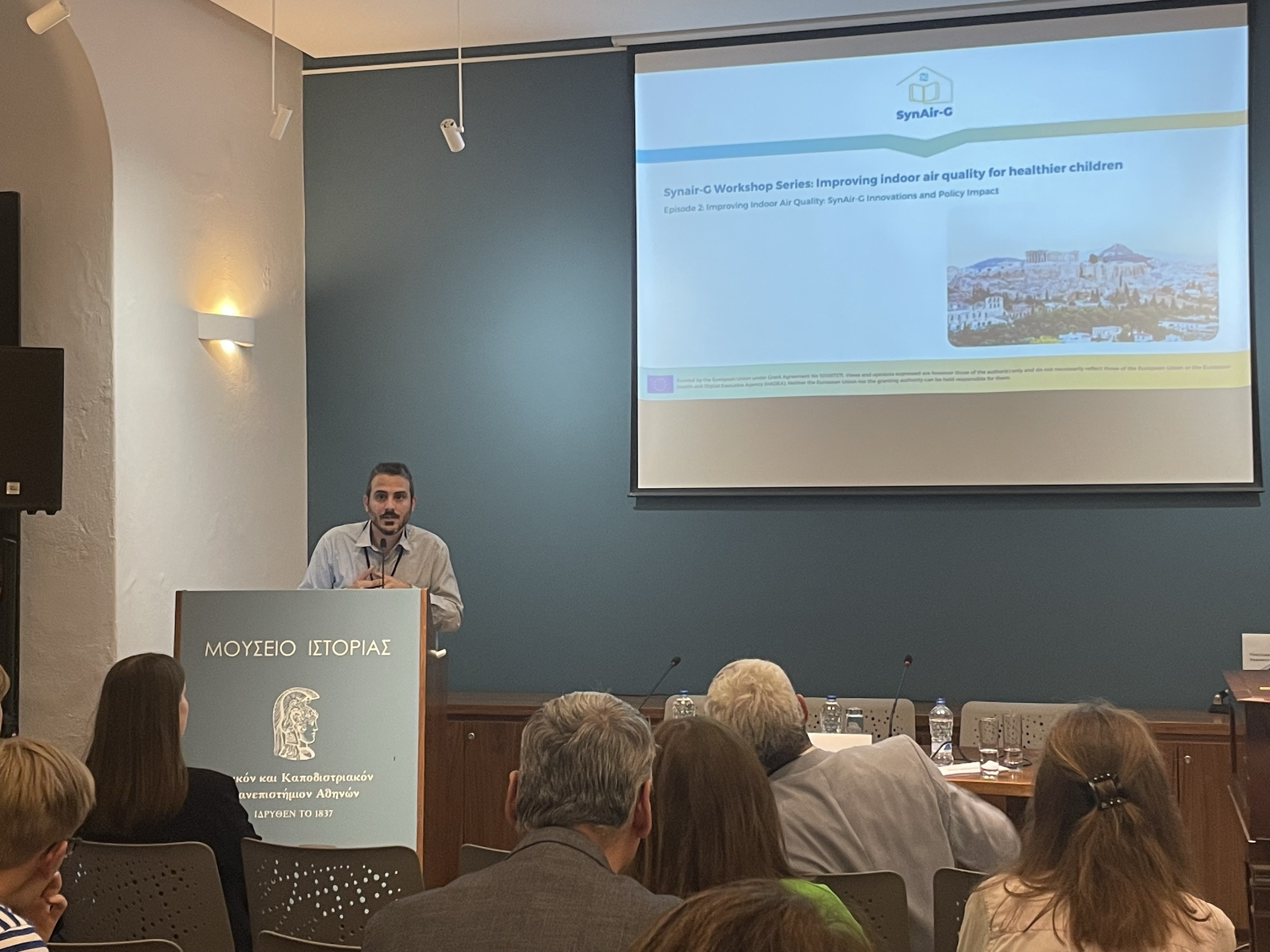EFA organized the second SynAir-G workshop at the Athens University History Museum. SynAir-G is an EU funded research project led by EFA, aiming to understand how indoor air quality affects children with allergy and asthma.

Right after the project annual general meeting, EFA held the second SynAir-G workshop to explore how indoor air quality (IAQ) impacts children's health, with research examples from schools in Greece. The workshop focused on how to translate scientific findings into real-world actions and how to tailor them to local needs to IAQ across Europe.
Why indoor air quality matters for all – and especially for children
Air quality is not just an outdoor issue. In a keynote speech, Prof. George P. Chrousos, Professor of Pediatrics and Endocrinology Emeritus at the National and Kapodistrian University of Athens stated that polluted air harms children’s developing lungs, immune system and overall health. Science shows that air indoors can be even more polluted with a dangeours mix of particles from dust, mold, or chemicals that linger from heating, cleaning, or even furniture materials. He highlighted the urgent need for evidence-based policies to ensure the indoor air is safer and cleaner.
Bringing patient perspective to EU policy on indoor air quality
EFA’s Senior Policy Advisor, Panagiotis Chaslaridis led the first panel, ‘Clean Air Indoors: the Role of EU Policies in Reducing Air Pollutants,’ emphasising that poor indoor air disproportionately impacts children and patients with respiratory conditions, contributing to chronic respiratory diseases and psychosocial challenges, especially for children who spend most of their time indoors. Poor IAQ can lead to increased asthma symptoms, allergy and strongly affect concentration and learning performance.
The highlight of the discussion was the newly published IDEAL Cluster Policy Brief, a set of policy recommendations, aimed at supporting stronger IAQ standards across the EU and led by EFA in collaboration with other EU projects on IAQ that collaborate within IDEAL, a research cluster from the EU Horizon programme.
Experts also addressed the current state of EU regulations on IAQ and the need for a standardised EU-wide definition. The discussion showed how research can inform policy by helping identify key pollutants and solutions.
Unfortunately, many still believe that indoor air is safer than outdoor air, a misconception the Synair-G project is actively working to change. Simple actions make a significant difference: using clean heating alternatives and air-friendly building materials are effective ways to improve indoor air quality.
Focus on schools in Greece – local efforts and strategies
This session brought together stakeholders from various sectors in Greece, including a primary school principal, a student with asthma, and a pediatrician to discuss the IAQ faced by Greek schools and the progress achieved with the support of SynAir-G. The student speaker shared her experience that while awareness about the importance of indoor air quality is increasing in schools, there is still much to be done in terms of actionable policies.
Next steps: expanding awareness and impact
The workshop closed with an overview of SynAir-G project accomplishments and future steps. Key findings and practices will be shared across the EFA network and beyond to continue driving improvements in IAQ for schools in Greece and across Europe.
EFA underlines the importance of local measures, innovative IAQ monitoring and the role of research in shaping EU policy and advocates for IAQ to become a top priority in EU public health action.
Learn more about EFA’s work on indoor air quality within the Synair-G consortium.